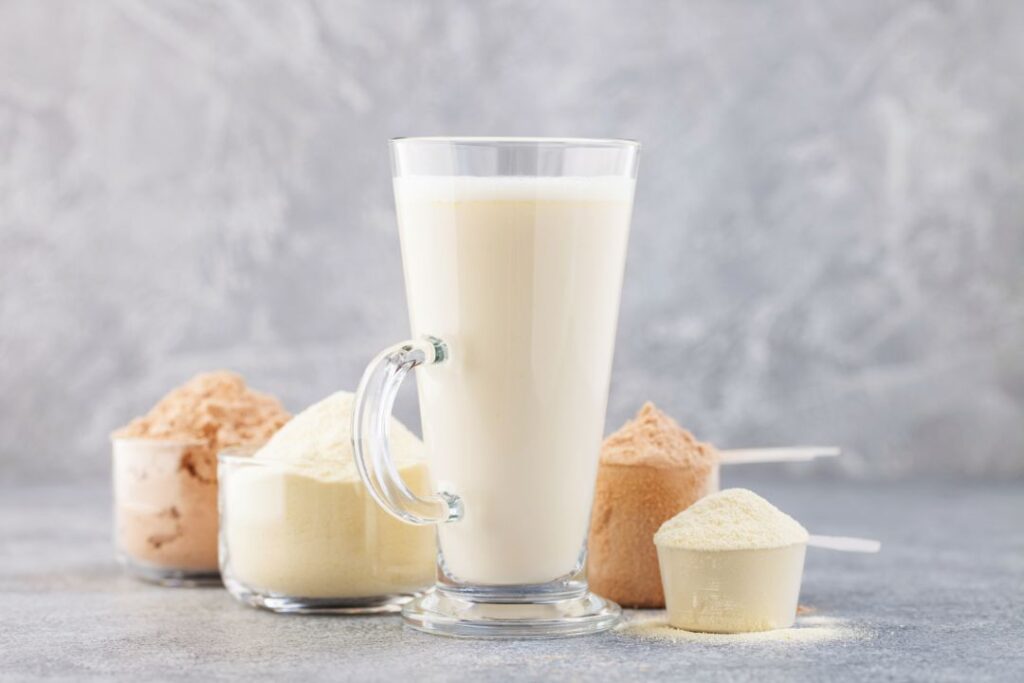Why is it important to drink Vegan Protein Smoothies?
Drinking protein smoothies is essential for several reasons:
- Muscle recovery and growth: Protein is essential for repairing and building muscles after exercise. Smoothies provide a convenient and quick way to consume a concentrated amount of protein, promoting muscle recovery and growth.
- Weight management: Protein has a high satiety effect, meaning it keeps you feeling full for longer. By including protein smoothies in your diet, you can reduce cravings, control your appetite, and manage your weight more effectively.
- Nutrient absorption: Smoothies can contain various ingredients like fruits, vegetables, and nuts, which provide essential nutrients. Protein smoothies can enhance the absorption of these nutrients by acting as a carrier and improving their bioavailability.
- Convenience: Protein smoothies are quick and easy to prepare, making them convenient for busy individuals or those with a hectic lifestyle. They offer a portable and nutritious meal or snack that can be consumed on the go.
- Dietary flexibility: Protein smoothies are versatile and can be customized to fit various nutritional needs and preferences. They can be made with different protein sources such as whey, plant-based, or collagen, allowing individuals to meet their specific dietary requirements.
Remember to consult a healthcare professional or registered dietitian for personalized advice on incorporating protein smoothies into your diet.
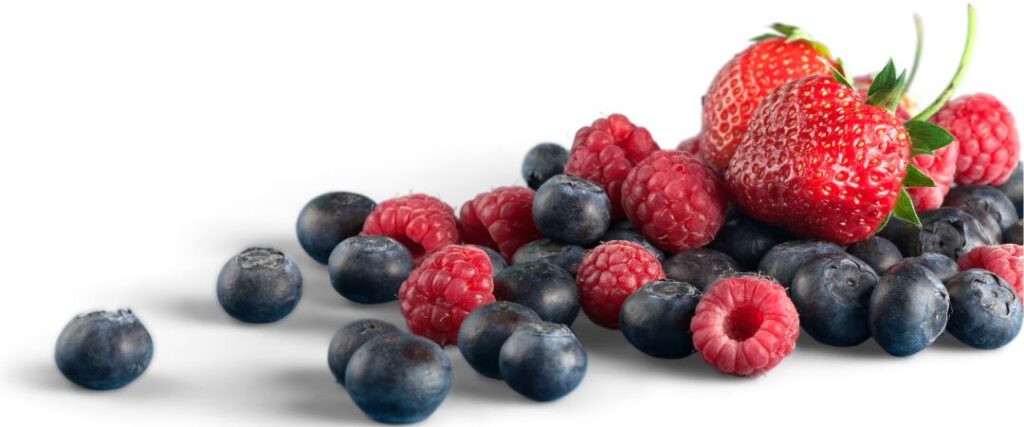
Recipe:
- 1 Cup of Almond Milk (Or whatever Vegan Milk Substitute you prefer)
- ½ Cup of Water
- 1 Scoop and a half of Vegan Protein Powder (Click here to see Protein Powders we’ve tried)
- ¼ Cup of Rolled Organic Oats
- ¼ Cup of Frozen Strawberries
- ¼ Cup of Blueberries
- Half a Banana
- 1 Tablespoon of Chia Seeds
Benefits of Drinking a Vegan Protein Smoothie
There are several reasons why people appreciate vegan protein smoothies and how they can positively impact your workouts:
- Plant-based protein: Vegan protein smoothies are made from plant-based protein sources like peas, hemp, rice, or soy. These options suit individuals following a vegan or vegetarian diet or those who prefer to limit their consumption of animal products. Plant-based proteins can provide all the amino acids necessary for muscle recovery and growth.
- Digestive ease: Some individuals find vegan protein sources easier to digest than animal-based proteins. This can prevent discomfort during or after workouts, allowing for better focus and performance.
- Nutrient-rich: Vegan protein smoothies often include a variety of fruits, vegetables, nuts, and seeds, which provide essential vitamins, minerals, and antioxidants. These nutrients support overall health and can contribute to better workout performance.
- Lower in saturated fat: Plant-based protein sources typically have lower saturated fat levels than animal-based proteins. This can be beneficial for cardiovascular health and may aid in maintaining a healthy body weight.
- Anti-inflammatory properties: Many plant-based protein sources contain anti-inflammatory compounds, such as antioxidants and phytonutrients. Vegan protein smoothies can support faster recovery and minimize exercise-induced muscle damage by reducing inflammation.
- Environmental impact: Vegan protein smoothies align with a more sustainable and eco-friendly approach to nutrition. Plant-based proteins generally have a lower carbon footprint and require fewer natural resources than animal-based proteins.
Incorporating vegan protein smoothies into your workout routine can provide a convenient and nutritious source of protein, support muscle recovery, and enhance overall performance. Consider your nutritional needs and consult with a healthcare professional or registered dietitian for personalized advice.
Vegan Protein Powders that we’ve tried:
Garden of Life Organic Protein Powder
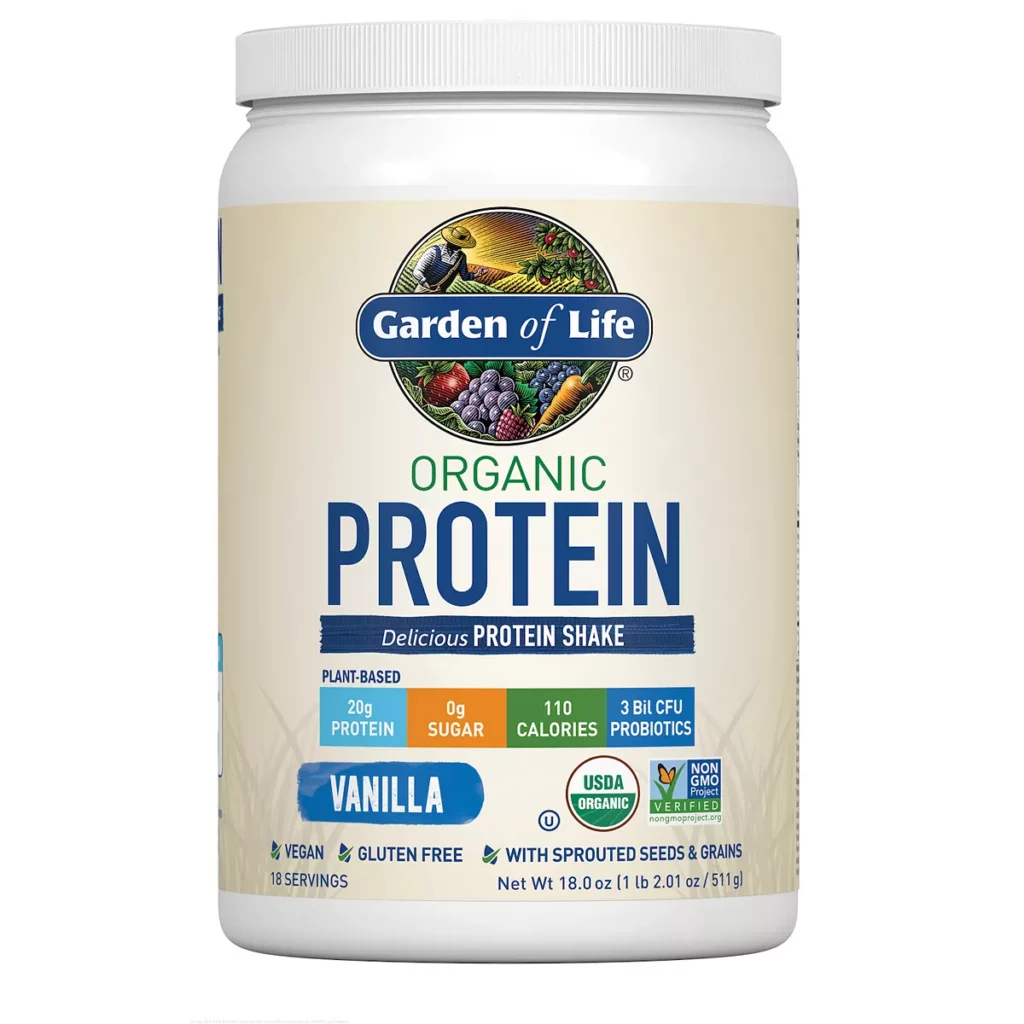
Sprouts Vanilla Vegan Protein
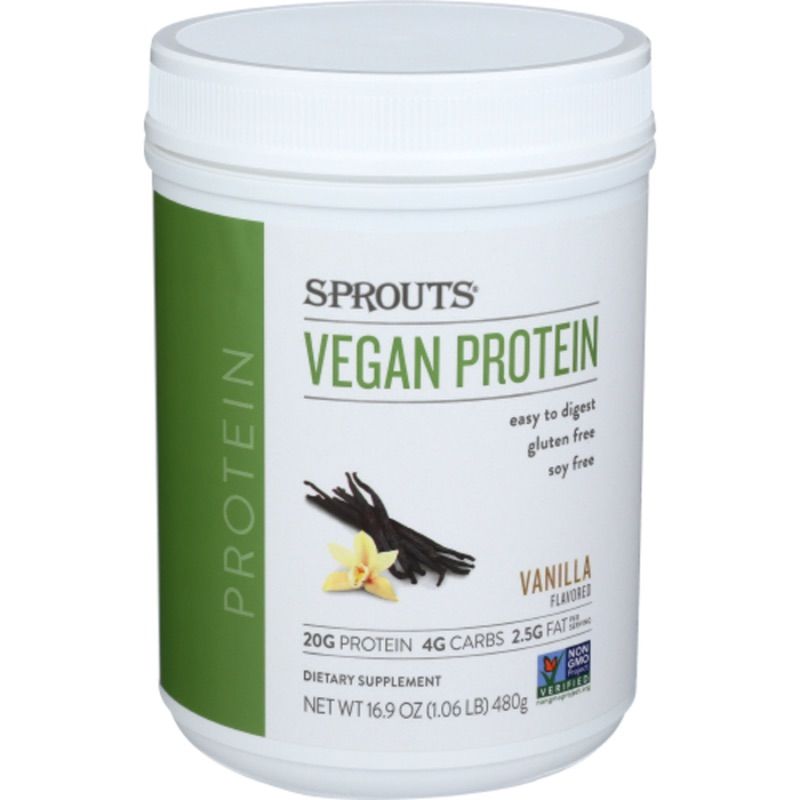
Orgain Organic Plant Based Protein Powder
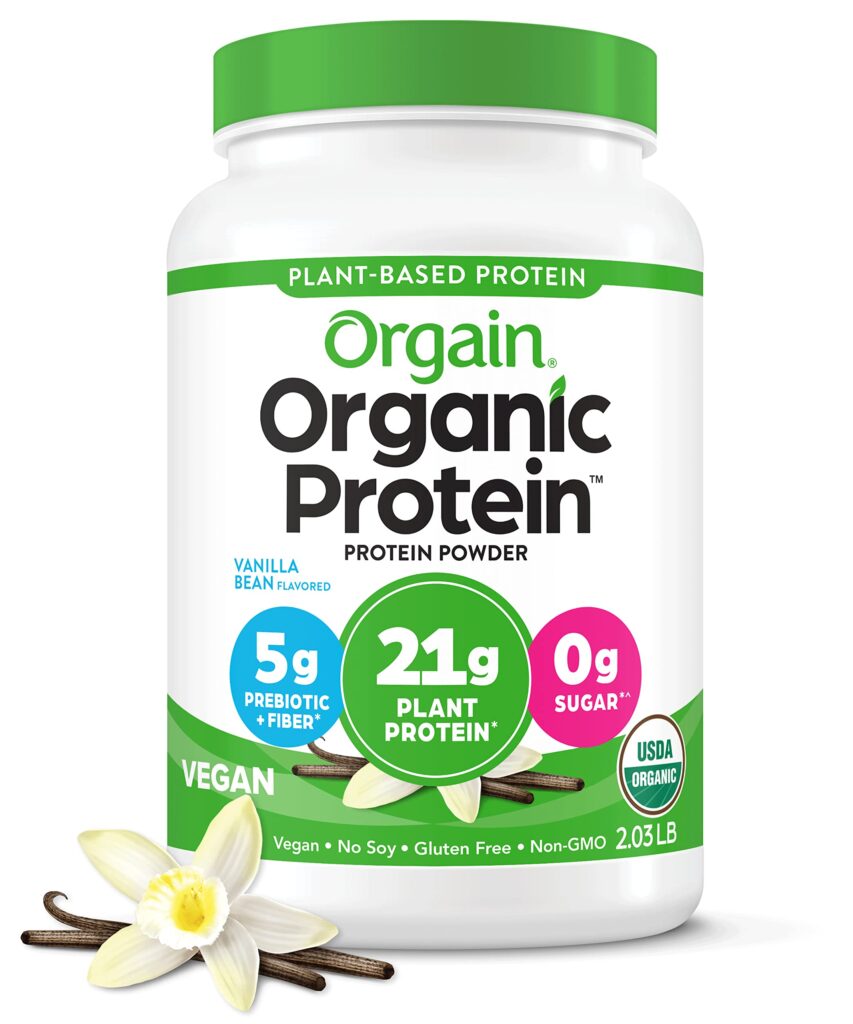
Frequently Asked Questions (FAQ)
What are the critical differences between vegan and non-vegan protein smoothies?
The main difference lies in the source of protein used. Vegan protein smoothies rely solely on plant-based protein sources, making them suitable for those following a vegan or vegetarian diet or individuals who prefer to avoid animal products. On the other hand, non-vegan protein smoothies incorporate protein powders derived from animal sources, making them a
What is a vegan protein smoothie?
A vegan protein smoothie is a smoothie that contains protein from plant-based sources only. It excludes animal-derived ingredients such as whey protein, casein, or collagen. Familiar vegan protein sources in these smoothies include peas, hemp, rice, soy, or a blend of plant-based proteins.
Are there any taste or texture differences between vegan and non-vegan protein smoothies?
The taste and texture of vegan and non-vegan protein smoothies can vary depending on the protein source. Vegan protein smoothies may have a slightly different taste and texture than non-vegan options. Plant-based protein powders can have a distinct earthy or nutty flavor, which may influence the overall taste of the smoothie. Non-vegan protein smoothies often have a milder taste and a creamier texture due to the characteristics of animal-based protein powders.
Can I substitute vegan protein for non-vegan protein in a smoothie recipe and vice versa?
You can substitute vegan protein for non-vegan protein or vice versa in a smoothie recipe. Remember that the choice of protein source may affect the smoothie’s taste, texture, and nutritional profile. Adjusting other ingredients or flavors can help balance the overall taste when substituting.

